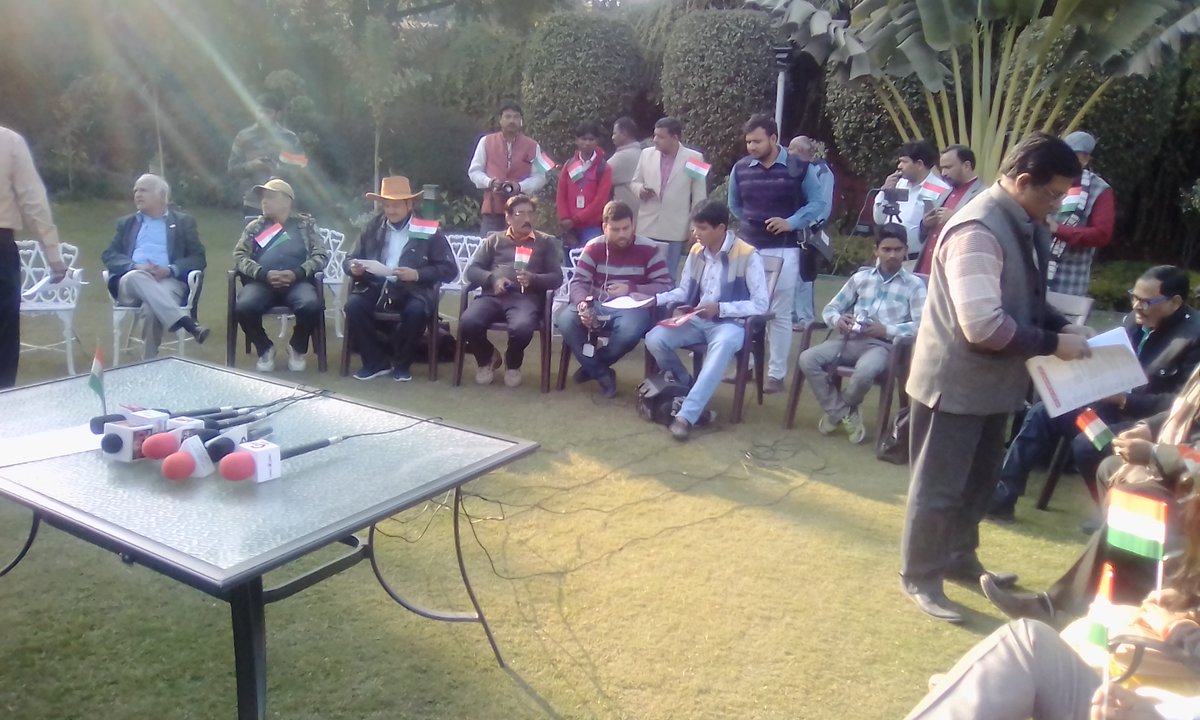Centre for Policy Research Quarterly Newsletter
 | |
| Quarterly Newsletter (October-December 2017) |
 |
|
|
Watch the full video of a short data-driven presentation by Neelanjan Sircar unpacking the results of the Gujarat elections, followed by a panel discussion between Prashant Jha, Mahesh Langa, Ruhi Tewari and Gilles Verniers. |
 | Why do interstate water disputes emerge and recur?
Srinivas Chokkakula
CESS Monograph 45 | RULNR Monograph 24
This monograph uses historical analysis of the Krishna river water dispute to make the following central argument: interstate water disputes in India are the result of a set of legal ambiguities, political antagonisms, as well as physical and power asymmetries. This renders such places as perennial sites of disputation. In India’s multiparty federal democracy context, it translates into a ‘nexus’ between politics of water and mainstream democratic politics, with the disputes becoming popular avenues for political mobilisation.
|
 | Handbook on Legal and Administrative Remedies for Community Level Environment Justice Practitioners (V2)
CPR-Namati Environmental Justice Team
Report | 2017
This handbook is an attempt to present scenarios where community level environmental justice practitioners can apply and use law to work with affected communities and seek desired remedies through an administrative route. Each scenario presents a problem type, what the complaints could be and then goes on to suggest some legal clauses through which a remedy can be pursued. It draws from several cases currently being pursued by enviro legal coordinators associated with the Centre for Policy Research (CPR)-Namati Environmental Justice Program. It also draws from the resolutions being pursued by implementing partners like Janabhivyakti (Chhattisgarh) and Keonjhar Integrated Rural Development and Training Institute (KIRDTI) (Odisha).
|
 | Towards a New Research and Policy Paradigm: An Analysis of the Sanitation Situation in Large Dense Villages
Shubhagato Dasgupta, Shamindra Roy, Aditya Bhol, and Deepti Raj
Report | 2017
This research explores the secondary data on sanitation infrastructure in large and dense villages in India from three census datasets. The analysis attempts to comprehend the preference for improved on-site sanitation facilities in selected villages, which were also found to be proximate to urban areas and national highways. The findings of the research highlight statewise variations in large and dense villages ,which account for sizeable percentages of respective state population and depict a, generally, high preference for septic tanks and improved pits. The results of the study substantiate the need for a primary survey to instruct policy making adequately on the indispensability of decentralised strategies to improve the sanitation value chain.
|
 | Paralegals for Environmental Justice (Version 2.0)
CPR-Namati Environmental Justice Team
Legal Guide | 2017
CPR-Namati’s Practice Guide for Environment Justice Paralegals provides a methodology for community mobilisers, activists and citizens groups to shift their attention from stating the problem to getting grievances addressed by environmental institutions. The guide is based on four years of work done by the paralegals of CPR-Namati Environment Justice Program to assist affected communities file complaints and seek remedies in over 150 cases of non-compliance in India.
|
|
|
|
|
      |
| The Centre for Policy Research (CPR) has been one of India’s leading public policy think tanks since 1973. The Centre is a non-profit, independent institution dedicated to conducting research that contributes to a more robust public discourse about the structures and processes that shape life in India. Visit our website at www.cprindia.org |


No comments:
Post a Comment